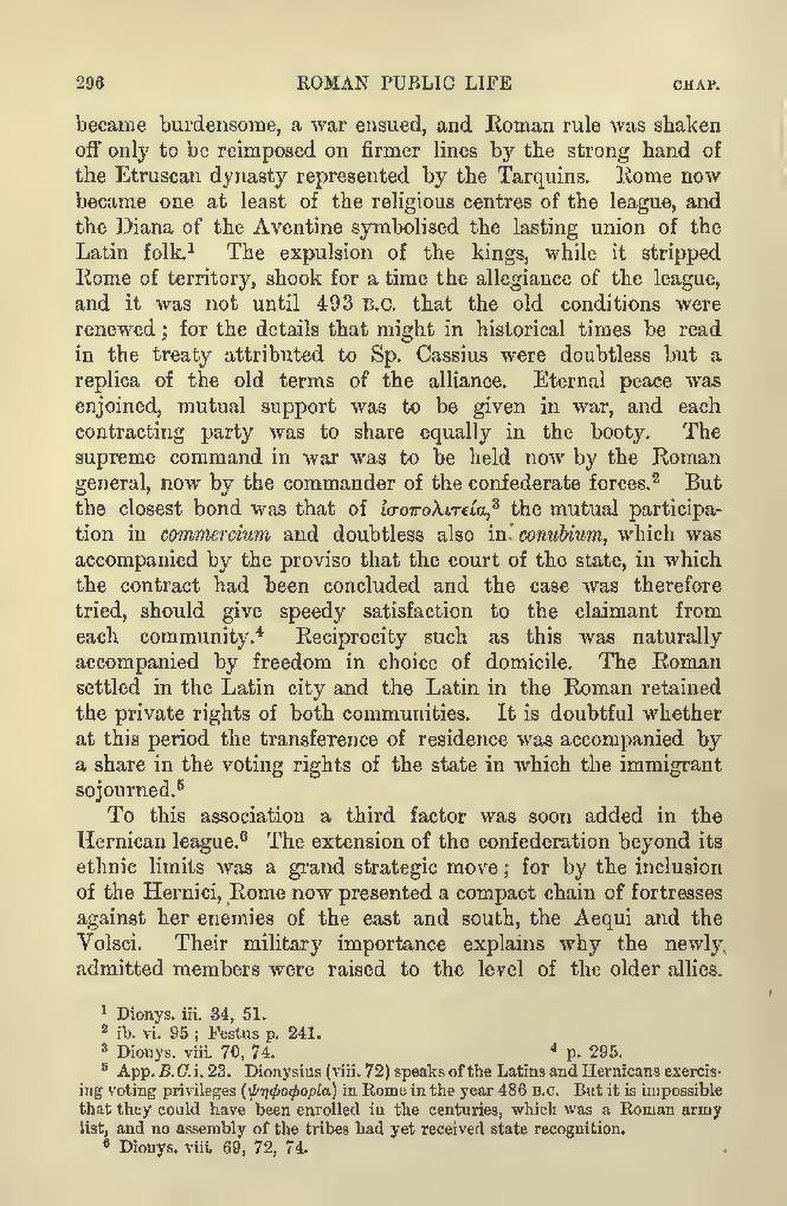became burdensome, a war ensued, and Roman rule was shaken off only to be reimposed on firmer lines by the strong hand of the Etruscan dynasty represented by the Tarquins. Rome now became one at least of the religious centres of the league, and the Diana of the Aventine symbolised the lasting union of the Latin folk.[1] The expulsion of the kings, while it stripped Rome of territory, shook for a time the allegiance of the league, and it was not until 493 B.C. that the old conditions were renewed; for the details that might in historical times be read in the treaty attributed to Sp. Cassius were doubtless but a replica of the old terms of the alliance. Eternal peace was enjoined, mutual support was to be given in war, and each contracting party was to share equally in the booty. The supreme command in war was to be held now by the Roman general, now by the commander of the confederate forces.[2] But the closest bond was that of [Greek: isopoliteia],[3] the mutual participation in commercium and doubtless also in conubium, which was accompanied by the proviso that the court of the state, in which the contract had been concluded and the case was therefore tried, should give speedy satisfaction to the claimant from each community.[4] Reciprocity such as this was naturally accompanied by freedom in choice of domicile. The Roman settled in the Latin city and the Latin in the Roman retained the private rights of both communities. It is doubtful whether at this period the transference of residence was accompanied by a share in the voting rights of the state in which the immigrant sojourned.[5]
To this association a third factor was soon added in the Hernican league.[6] The extension of the confederation beyond its ethnic limits was a grand strategic move; for by the inclusion of the Hernici, Rome now presented a compact chain of fortresses against her enemies of the east and south, the Aequi and the Volsci. Their military importance explains why the newly admitted members were raised to the level of the older allies.) in Rome in the year 486 B.C. But it is impossible that they could have been enrolled in the centuries, which was a Roman army list, and no assembly of the tribes had yet received state recognition.]
